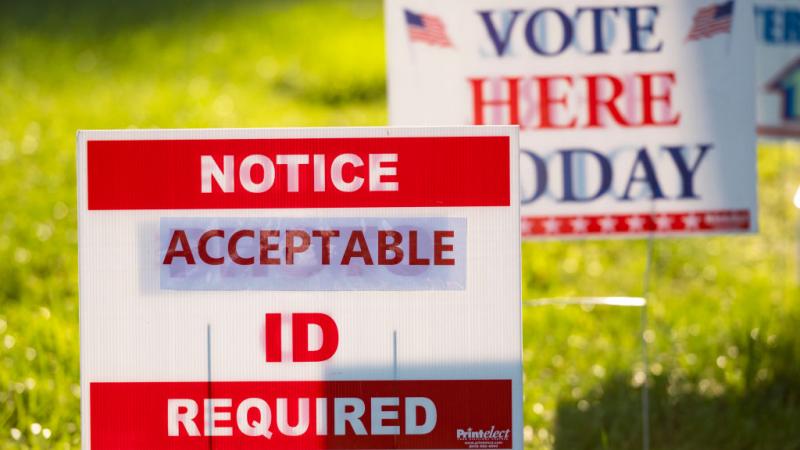Iran resistance renews calls for regime change amid anniversary of 1988 massacre
Although most of the day’s activities were focused on the grim anniversary of the killings in Iran, it was also notable that the event took place as the future of the 2015 Iran nuclear deal was cast into doubt.
The National Council of Resistance of Iran is somberly marking the 35th anniversary of the mass killings of Iranian political prisoners with renewed calls for regime change and criticisms of the sputtering 8-year-old nuclear pact between Tehran and the West.
Monday’s activities came on the fourth and final day of the 20th Free Iran Summit in Paris. Unlike previous days that featured scores of the NCRI’s high-profile political allies, many of the speakers Monday were survivors of the extrajudicial 1988 mass executions.
Most of the victims of the killings 35 years ago -- estimates are that as many as 30,000 political opponents of the then-Ayatollah Ruhollah Khomeini lost their lives over a five-month period starting in July 1988 -- were members of the People’s Mojahedin Organization of Iran, or MEK, the militant wing of the NCRI.
Maryam Rajavi, the head of the NCRI, said the tragic events of 1988 could still be felt in the more recent uprisings against the mullahs that she says will ultimately result in their removal from power in Iran.
“The untainted blood of the innocent souls massacred in 1988 resonates today in the ongoing uprisings of the Iranian people and it continues to inspire and motivate rebellious youths across generations,” Rajavi said.
In addition to Rajavi, several survivors of the 1988 executions recounted their memories of the 35-year-old tragedy, including mass torture, systematic slayings, and other significant human rights abuses. Many bodies of the murdered remain unrecovered.
Also on Monday, Tahar Boumedra, a former head of the United Nations Human Rights Office in Iraq, called for an international commission to look into the mass killings in Iran. Several speakers referred to the executions as crimes against humanity.
Other speakers addressing attendees Monday included Kenneth Lewis, who represented multiple plaintiffs in a Swedish trial looking into the executions; Pierre Sané, a former secretary-general of Amnesty International; and University of Western Australia Professor Melanie O’Brien, president of the International Association of Genocide Scholars.
Although most of the day’s activities were focused on the grim anniversary of the killings in Iran, it was also notable that the event took place as the future of the 2015 Iran nuclear deal was cast into doubt.
Then-President Donald Trump withdrew the U.S. from the deal five years ago, but Germany, France, and the U.K. stayed on board. Iran reportedly responded to the U.S. move by breaching agreed-to limits on the quantity of high-quality enriched uranium it could have, and over the weekend the European powers said they would in turn refuse to lift sanctions in October as the deal requires.
President Joe Biden has reportedly restarted talks with Iranian officials in an effort to limit the country’s nuclear program and negotiate the release of Americans jailed in the country. But those discussions have so far failed to yield any concrete results.
The NCRI opposes the 2015 deal as well as negotiations for a new one on the grounds that any such agreement would only strengthen Iranian Supreme Leader Ayatollah Ali Khamenei’s grip on power.
“The original [nuclear deal] was flawed, because it kept the entire nuclear infrastructure intact and did not target the weaponization aspects of the nuclear program,” Alireza Jafarzadeh, deputy director of the NCRI’s Washington Office, told Just the News.
“Reviving the nuclear deal under any pretext is not only counterproductive but immoral, since it would provide cash and resources to the supreme leader,” Jafarzadeh said.
















